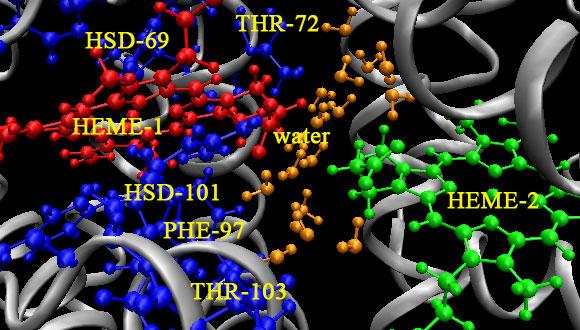Special Physical Chemistry Seminar: MemComputing: A Brain-Inspired Topological Computing Paradigm
Prof. Massimiliano Di Ventra, University of California, San Diego
Abstract:
Which features make the brain such a powerful and energy-efficient computing machine? Can we reproduce them in the solid state, and if so, what type of computing paradigm would we obtain? I will show that a machine that uses memory to both process and store information, like our brain, and is endowed with intrinsic parallelism and information overhead - namely takes advantage, via its collective state, of the network topology related to the problem - has a computational power far beyond our standard digital computers [1]. We have named this novel computing paradigm “memcomputing” [2, 3]. As examples, I will show the polynomial-time solution of prime factorization, the search version of the subset-sum problem [4], and approximations to the Max-SAT beyond the inapproximability limit [5] using polynomial resources and self-organizing logic gates, namely gates that self-organize to satisfy their logical proposition [4]. I will also demonstrate that these machines are described by a Witten-type topological field theory, and they compute via an instantonic phase, implying that they are robust against noise and disorder [6]. The digital memcomputing machines that we propose can be efficiently simulated, are scalable and can be easily realized with available nanotechnology components, and may help reveal aspects of computation of the brain.
[1] F. L. Traversa and M. Di Ventra, Universal Memcomputing Machines, IEEE Transactions on Neural Networks and Learning Systems 26, 2702 (2015).
[2] M. Di Ventra and Y.V. Pershin, Computing: the Parallel Approach, Nature Physics 9, 200 (2013).
[3] M. Di Ventra and Y.V. Pershin, Just add memory, Scientific American 312, 56 (2015).
[4] F. L. Traversa and M. Di Ventra, Polynomial-time solution of prime factorization and NP-complete problems with digital memcomputing machines, Chaos: An Interdisciplinary Journal of Nonlinear Science 27, 023107 (2017).
[5] F. L. Traversa, P. Cicotti, F. Sheldon, and M. Di Ventra, Evidence of an exponential speed-up in the solution of hard optimization problems, arXiv:1710.09278.
[6] M. Di Ventra, F. L. Traversa and I.V. Ovchinnikov, Topological field theory and computing with instantons, Annalen der Physik 1700123 (2017).


